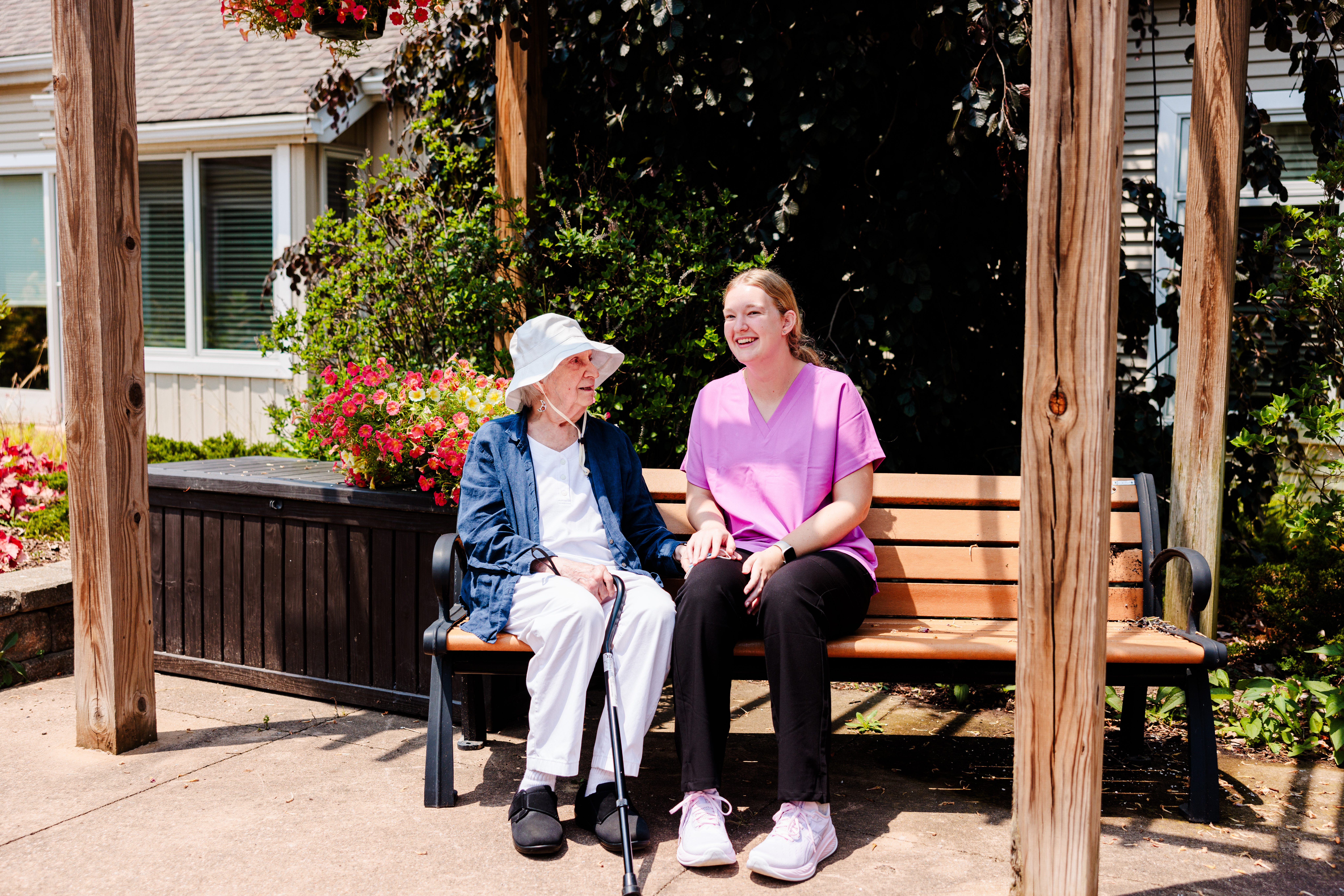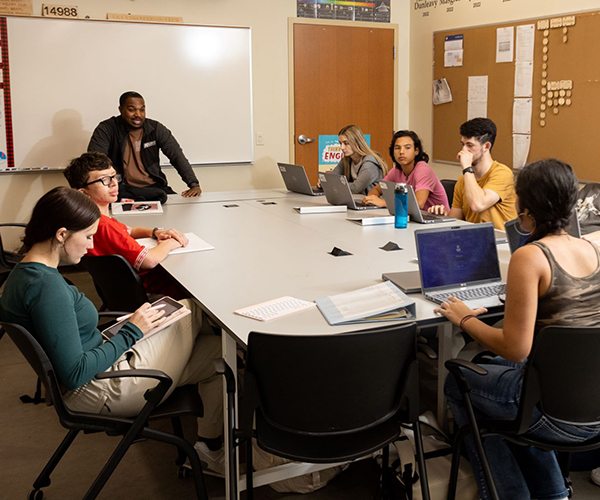Beyond the Center
by Heide Aungst | Jan. 26, 2005 | 5:00 AM
| View the child-care center chart, which features costs, amenities and more. Click here. |
Child care at school
While children from lower-income families are eligible for Head Start programs, other families have to pay for preschool — unless they live in Cuyahoga Heights, which offers a free, accredited, half-day preschool program to all 4-year-olds living in the district.
"Starting kids out as a 4-year-old in a half-day program gets them acclimated to a school structure, routines and what's expected of them, so they start kindergarten with their feet moving," says Andy Picciano, principal of Cuyahoga Heights Elementary School.
This arrangement benefits school districts as well as children. As schools encounter more pressure to test children as young as kindergarteners, it helps to get them early. In fact, the alignment with kindergarten programs is one advantage of several school district-run preschools in the area, including Bay Village and Cleveland Heights-University Heights.
Bay Village's child-care program, operated by the school district, accepts children from age 7 weeks to fifth grade. Tuition ranges from $500 a month for full-time preschool to $625 for full-time infant care. The Cleveland Heights-University Heights program accepts children from 18 months in its Stepping Stones Program at Millikin Early Childhood Center (see chart on page 76). Both Bay Village and Cleveland Heights-University Heights usually have waiting lists for their child-care programs.
Making Baby part of the corporate family
Some children have the best of both worlds. They can remain close to a parent during the day and still experience the socialization of group child care.
While most companies shy away from providing child care because of liability and administrative hassles, a few in the area find it's a great benefit for retaining employees.
Ford Motor Co. in Cleveland and Summa Health Systems in Akron contract with Bright Horizons Family Solutions, a Boston-based organization that offers corporate child care. For the past 20 years, NASA Glenn Research Center has offered its employees Lewis Little Folks, a full-time accredited child-care and kindergarten program for employees' children. In the summer, Lewis Little Folks takes children through third grade for a summer camp. (see chart on page 76)
The program is so popular with employees that there's a long waiting list, says director Maureen Sartain.
From an employee standpoint, it's hard to beat US Endoscopy in Mentor. It, too offers a child-care program to its employees — for free.
"It goes with our whole corporate culture," says Gretchen Cohen, executive vice president and co-owner of US Endoscopy. "We're a family-owned, family-run business. We know that our employees are our greatest asset and work-life balance is important to all of us."
Cohen says she often fields questions from other companies considering setting up similar centers. She tells them that it has paid off for her company as a recruiting tool, as well as a way to retain workers.
Instead of providing child care onsite, some companies offer employee discounts at nearby centers. The Cleveland Clinic, for example, gives discounts to employees using KinderCare Learning Center on East 93rd Street. Other companies help employees with their child-care costs by having flexible spending accounting, which allows parents to put pre-tax dollars in an account for use for child-care expenditures.
There are few drawbacks to corporate child care for employees and it's good for companies, too.
Keeping your child at home — someone else's home
Barb Dunning's oldest daughter was bitten eight times by another child in a center, and no one notified her. So when she was asked to help find care for her granddaughter, Alexis, she wouldn't consider a center.
"I think in home day-care centers, there's a lot more one-on-one attention with the children and you can weed out problems sooner," Dunning says.
Alexis, now 17 months old, started in the West Side Cleveland home of Theresa Warner when she was just 3 weeks old. Dunning says Warner has the entire home set up for the children and has become a second mom to Alexis, who spends as much as 47 hours a week there.
Warner started taking children into her home five years ago, after the death of her husband. Most of the children she accepts have special needs, including children with autism or Down syndrome and one awaiting a heart-lung transplant. She says her goal is for the children to live as normal a life as possible.
"If you come here and we have the Christmas tree up in June and we're playing Christmas music, it's OK. I just believe that kids need to be kids and have fun," Warner says.
Many of the drawbacks of in-home child care depend on the caregiver. Is she helping the child learn colors, letters and numbers? Or do the children watch TV all day? Many in-home caregivers aren't licensed, and those who are get inspected only twice annually.
"I think a lot of home providers get a bad rap because there are some bad ones out there and they make us look bad," Warner says. "But there's a lot of good ones out here with big hearts and with a lot of love who are willing to give a lot to these kids."
Staying home with a nanny
If you think it's important to have a one-on-one child-caregiver relationship, then nanny or governess care may be best for you. The English Nanny & Governess School of Chagrin Falls defines a governess as someone with a bachelor's degree who has completed its 12-month program. A nanny just completes the program.
Not surprisingly, this type of care is the most expensive. Nannies make a minimum of $450 a week, plus benefits including paid vacation. (Governesses start at $650 a week.) Often, nannies get additional perks, including a car. And there's an up-front fee to the nanny school or agency: about 20 percent of the nanny's first year's salary — a minimum of $4,680.
"The baby-sitter is there for temporary care," says Sheilagh Roth, executive director of the English Nanny & Governess School. "The nanny is there to put the child on the track for Yale or Harvard."
It costs a student $6,900 to attend the one-year nanny program. Candidates undergo a complete background check before being accepted. Then, they receive three months' instruction on everything from childhood nutrition to the arts. After that, the student gets hands-on experience during a nine-month externship caring for children.
It's imperative that you hire the right nanny to fit with your expectations and your child's personality, Roth says.
"It's a very intimate relationship working in a family situation," she notes.
Once you look around a bit, it may seem as if you have too many options for child care. That's why it's good to start your search early, at least a few months before your child will need care. Spend time with providers you're considering, watch them care for other children and call their references. The best option for you, your child and your budget will reveal itself.
And, unlike some other decisions you make, you won't be "locked in" to any child-care provider. You can always change your mind.
Trending
-
1
-
2
-
3
-
4
-
5










